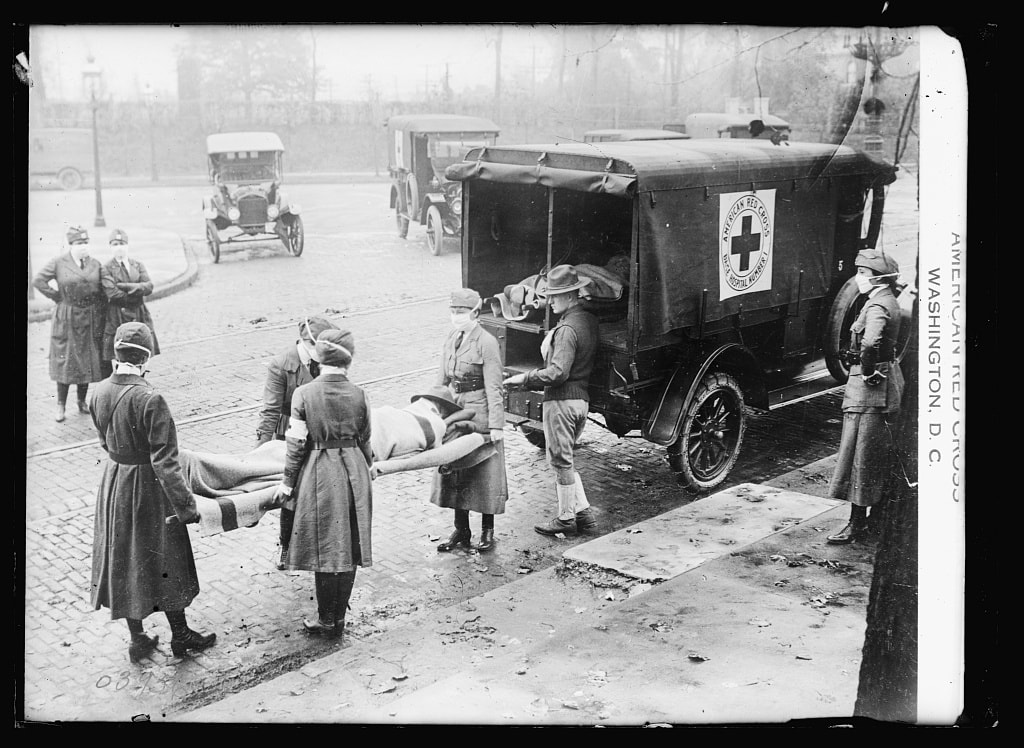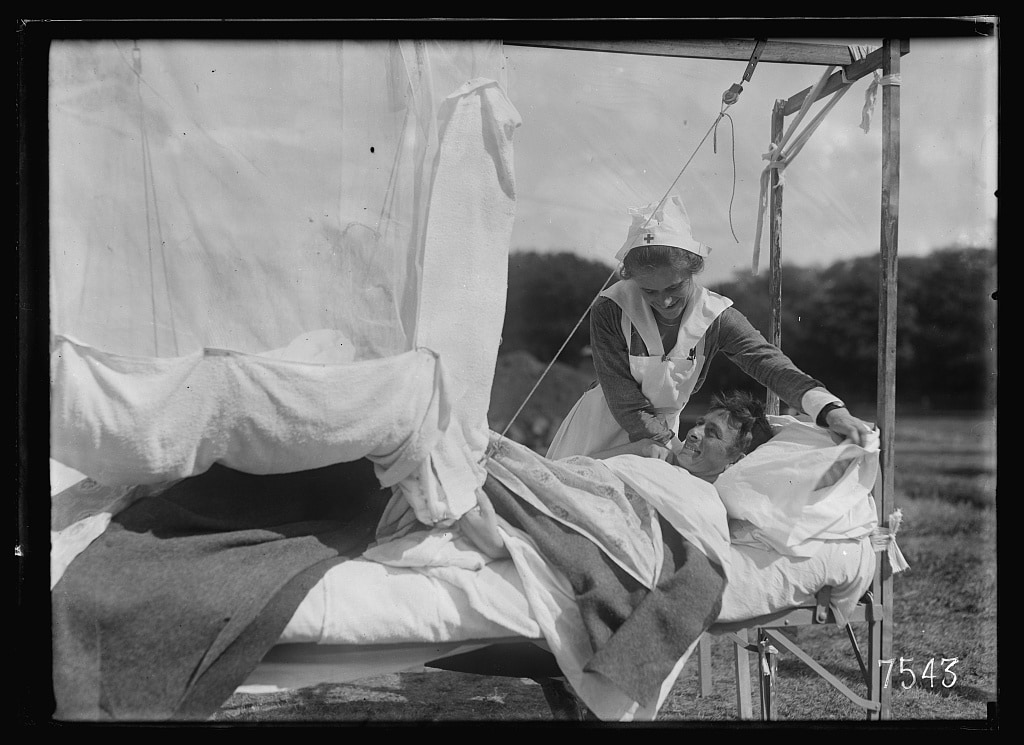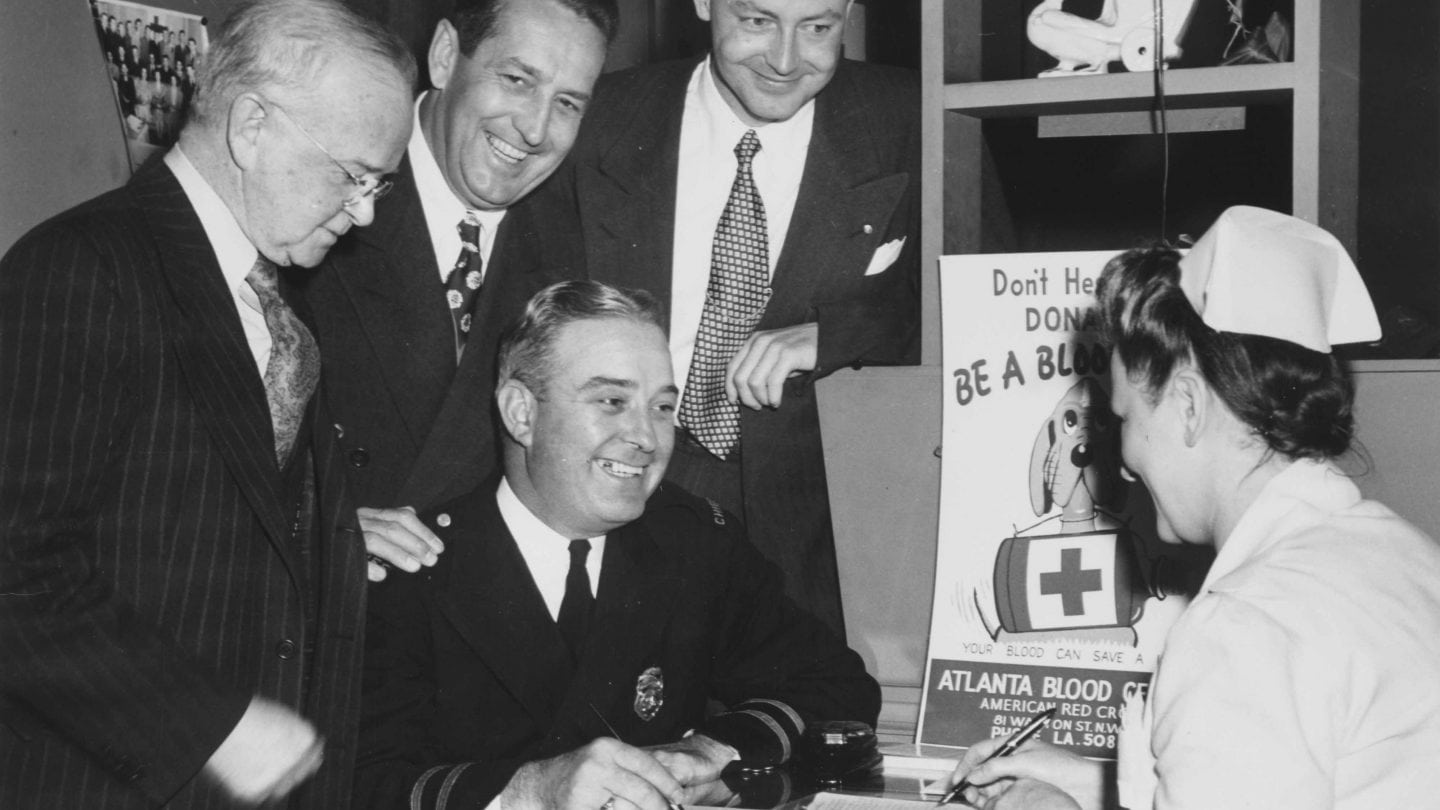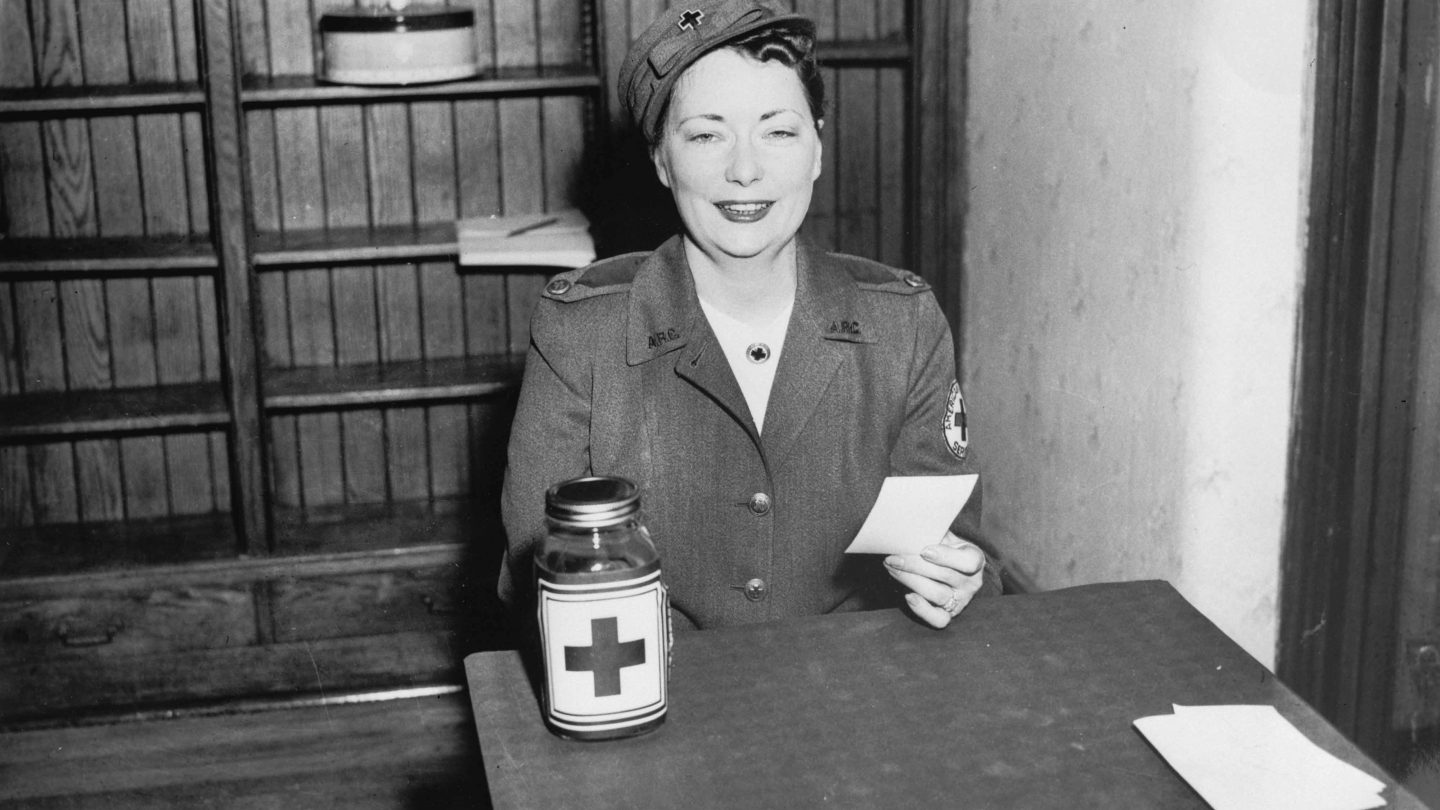
(1918) St. Louis Red Cross Motor Corps on duty. St. Louis United States Missouri, 1918. October. [Photograph] Retrieved from the Library of Congress, https://www.loc.gov/item/2017668639/.
On June 17, 2021, Atlanta History Center will host a Red Cross blood drive. Community blood drives are crucial to maintain a healthy blood supply, especially during a time when many office buildings and schools remain closed. The Red Cross is also experiencing a significant decrease in diverse donors amid the coronavirus outbreak. This presents a unique challenge for targeting specific illnesses—such as sickle cell disease which largely affects African Americans. We understand the importance of volunteers and donations and are proud to do our part. Whenever there is a time of need, the American Red Cross and its Atlanta chapter are always ready to help. Atlantans owe it to the Red Cross, and to ourselves, to do the same. Sign up for your lifesaving blood donation here.
The American Red Cross is the gift that keeps giving. It shelters, feeds, and provides emotional support of victims of disasters; teaches life-saving skills; provides international humanitarian aid; and supports military members and their families. Having earned the nickname “Angel of the Battlefield” during the Civil War, it’s only fitting that Clara Barton founded the American Red Cross decades later. Barton was determined to bring the Red Cross to America after first discovering the work of the International Red Cross during the Franco-Prussian War. On May 21, 1881, the American Red Cross was established, thanks to early supporters including John D. Rockefeller, William H. Taft, and Frederick Douglass. By 1900, the organization gained its first congressional charter from the government. This tasked them with providing services to members of the American armed forces and their families, as well as providing disaster relief in the United States and around the world.

Hine, L. W., photographer. (1918) Living up to the tradition of her name, Miss Clara Barton of Grand Rapids, Michigan, is caring for the wounded American soldiers at American Military Hospital No. 5 at Auteuil, a tent hospital put up and supported by the AMERICAN RED CROSS. France, 1918. September. [Photograph] Retrieved from the Library of Congress, https://www.loc.gov/item/2017682327/.
To this day, the Red Cross continues to adapt to the needs of those they serve
Regional branches have empowered the network to expand their outreach from coast-to-coast and beyond U.S. borders. In June 1914, the Atlanta chapter of the Red Cross began with first aid training and a mission to save lives. Just four years into their existence, the now 107-year-old branch had responded to its first disaster—the Great Atlanta Fire—entrenching itself at Ft. McPherson to assist WWI soldiers and help the community navigate the influenza pandemic.

View of Atlanta Police Chief Herbert Jenkins (sitting) and other unidentified men with a Red Cross nurse during a blood drive in Atlanta, Georgia. VIS 43.11.07, Photograph by Lane Brothers, Kenan Research Center at Atlanta History Center
The Atlanta chapter of the American Red Cross was essential to the 1918 pandemic because many doctors were serving in the military during World War I. Red Cross nurses were dispatched to homes and sick families to do whatever was needed—including cooking meals, caring for children, and treating wounds or illnesses.
One supporter of the Atlanta chapter during wartime was author Margaret Mitchell. Having served for the Red Cross since the age of 16, Mitchell was a devout volunteer. She served as a first aid instructor, worked on fund campaigns and was a member of the Speakers Bureau. Mitchell was influential in helping the Red Cross establish a canteen for 2,000 military men at Piedmont Park after Pearl Harbor in 1942. She also coordinated a U.S. Army celebration with music and dancing for the soldiers to enjoy. She was often seen in her Red Cross uniform, helping soldiers mend clothing, or mailing toiletry items along with personal letters.

View of author Margaret Mitchell in a Red Cross uniform. VIS 82.29.16, Photograph by Rogers, Kenneth, 1907-1989, Kenan Research Center at Atlanta History Center
After WWII, Atlanta’s Red Cross launched a community blood program and opened the first blood plasma bank in the South in 1942. Today, the chapter provides support for the Red Cross Southern Blood Services Region headquartered in Douglasville, Georgia, where local blood donations are processed, tested, and distributed to more than 100 hospitals in Georgia, parts of South Carolina, and North Florida. Whenever the Red Cross isn’t providing aid near a battlefield, they’re serving on the frontline of public health.
Someone in the U.S. needs blood approximately every two seconds.
Blood donations are essential for surgeries, cancer treatment, chronic illnesses, and traumatic injuries due to accidents or wounds. Whether a patient receives whole blood, red cells, platelets or plasma, this lifesaving care starts with one person making a generous donation. One donation can save up to three lives, and one person can require more than 100 pints of blood. Blood donation is an essential service, yet in 2020, the Red Cross saw blood drive cancellations triple nationwide compared to 2019—mostly due to the COVID-19 pandemic.
View of a Red Cross Disaster Service Center temporarily set up in the gymnasium of the Perry Homes housing project after a tornado caused extensive damage to the housing complex located in northwest Atlanta, Georgia. VIS 101.540.020, Boyd Lewis Photograph Collection, Kenan Research Center at Atlanta History Center
Over 50,000 blood drives have been canceled as the pandemic forced schools, businesses, and community organizations to close—impacting over 1 million blood donation appointments.
These blood drive cancellations have significantly impacted the ability to collect lifesaving blood donations from the Black community. Unfortunately, disproportionately high COVID-19 infection rates, hospitalizations, and fatalities within Black communities have deterred many donors from giving. The cancellation of drives at educational institutions and businesses where most of these individuals give has made the challenge even greater.
Right now, the Red Cross is asking for help to address a critical need for African American and Black blood donors.
African American and Black blood donors have a unique ability to help sickle cell patients. There is no cure for sickle cell disease, however, the Red Cross supports one of the most critical sickle cell treatments of all—blood transfusion. Nearly 10,000 Georgians living with sickle cell disease depend on the Red Cross to meet their lifelong need for blood transfusions from genetically similar blood donors. Without readily available blood supply, patients with sickle cell disease can experience severe pain, tissue and organ damage, acute anemia, and even strokes.
A few ways to help the Red Cross include (1) donating blood and sharing on social media within your network or institution, (2) encouraging others to schedule an appointment to give blood, and (3) to host or support a blood drive. Atlanta History Center is proudly doing all three. In honor of World Blood Donor Day on June 14, and World Sickle Cell Day on June 19, we invite you to join us on Thursday, June 17 for an American Red Cross blood drive from 10am to 3pm. Together we can make history by doing our part to save lives during a time when it matters most.


